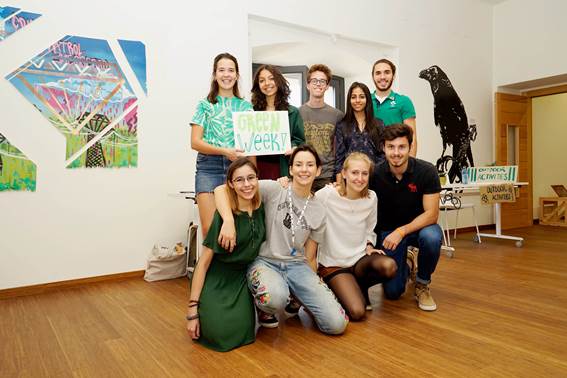SEGOVIA – As the IE Prizes in the Humanities drew near its end attendees were able to listen to a brief forum discussion on Nnamdi Ehirim’s book: The Prince of Monkeys (2019). During the discussion, Nnamdi provoked an interesting conversation on the competing views of cultural diversity and entrepreneurship, and its place within the humanities.
Set for the most part in Lagos, Nigeria, the book narrates the story of 4 Nigerian teenagers in the late (19)90s as they endeavor to survive in a tumultuous era of self-doubt and uncertainty. The protagonists in the book are teenagers from different socioeconomic and cultural backgrounds, making the book a coming-of-age story as they try to find their place in a country entrenched in socio-political turmoil.
Nnamdi moved from Lagos to Enugu at the age of 8, giving him the opportunity to acquire different perspectives on domestic issues and people within his country he was not previously exposed to. In 2018 he moved Madrid to complete the one-year MBA program at IE Business School in order to fuel his entrepreneurial drive of creating a company focused on generating renewable energy to rural villages in Nigeria.
During the talk, Nnamdi shared his experiences of coming to IE Business School and how it relates back to the narrative in his book. Entrepreneurship seems like a constant drive for greatness and creation, however cultural diversity does not seem to partake in the process.
“In social entrepreneurship, you do not settle, you always want to create more and do more.“
There is an unending journey towards perfectionism in the entrepreneurial world.
When coming to IE Business School, Nnamdi was confronted with the amount of diversity that was within his classroom and the clash with entrepreneurship as a concrete structure.
“The previously existing stereotypes of people that you had before disappear. You are driven by your values and guided by your ethic, however there is something to learn from every person’s perspective.”
At first glance, cultural diversity and entrepreneurship seem to be two polar opposites, one pushing for constant reinvention while the other champions tradition and customs. However they both seem to be reinforcing one another when it comes to reaching new goals and achieving greatness, professionally or even personally.
Everyone has something they can bring to the table, and their background and culture can shift the perspective in many positive ways. It proves that a person exposed to many different perspectives, wanting to achieve their goals will reap the benefits of a mindset consisting of many different ideas. Cultural diversity, instead of impairing entrepreneurship, breeds it. This theme is recurrent in his book, as he tries to depict the stubbornness of the protagonists and the threat competing perspectives pose to the absolute truth one seems to have in the unpredictable and ever-changing Nigeria of the 90s.
In today’s world it is increasingly customary to seclude one’s self from others. Nnamdi conveys an insightful anecdote about cooperation, not individualism. Perhaps we can all learn a lesson or two from that.






